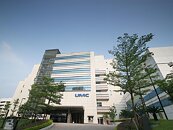TheLostSwede
News Editor
- Joined
- Nov 11, 2004
- Messages
- 17,616 (2.41/day)
- Location
- Sweden
| System Name | Overlord Mk MLI |
|---|---|
| Processor | AMD Ryzen 7 7800X3D |
| Motherboard | Gigabyte X670E Aorus Master |
| Cooling | Noctua NH-D15 SE with offsets |
| Memory | 32GB Team T-Create Expert DDR5 6000 MHz @ CL30-34-34-68 |
| Video Card(s) | Gainward GeForce RTX 4080 Phantom GS |
| Storage | 1TB Solidigm P44 Pro, 2 TB Corsair MP600 Pro, 2TB Kingston KC3000 |
| Display(s) | Acer XV272K LVbmiipruzx 4K@160Hz |
| Case | Fractal Design Torrent Compact |
| Audio Device(s) | Corsair Virtuoso SE |
| Power Supply | be quiet! Pure Power 12 M 850 W |
| Mouse | Logitech G502 Lightspeed |
| Keyboard | Corsair K70 Max |
| Software | Windows 10 Pro |
| Benchmark Scores | https://valid.x86.fr/yfsd9w |
The chip shortage discussion has been very focused on TSMC for some reason and although the company is without a doubt the world's leading foundry, the company is making its living from being a cutting edge foundry, whereas much of the components that there's a shortage of are made on far older nodes at many different foundries. Taiwanese UMC is one of the foundries that makes many of the automotive semiconductors, as well as key components when it comes to power regulation and is considered the world's third largest foundry.
Until 2018, UMC was competing head on with TSMC, although the company was always about a node behind TSMC, which led to a management team decision to slow down its node transition and instead to focus on speciality technologies. The company has done well in this niche, with a revenue of about US$6.2 billion in 2020. However, UMC is starting to feel the pressure from its competitors in China, as the PRC government is making a push for local production of local IC designs.

That in itself might not be a challenge for UMC, as the company is offering some unique products to its customers, such as mixed-mode RF and RF on SOI, various MEMS and CMOS image sensor solutions and high Voltage solutions. That said, some 16 percent of UMC's revenue is from companies based in China and this is likely to decline as the likes of SMIC and HLMC are starting to catch up. A bigger worry is the fact that the PRC government is giving incentives to local IC design companies if they produce their designs using local foundries.
Currently, UMC has long-term contracts with some 70 percent of its clients that stretches three to six years into the future, but with increasing competition it looks like UMC is going to have to work on bringing more advanced node offerings to its customers. It should also be noted that GlobalFoundries is currently UMC's biggest competitors when it comes to a lot of the specialty products, especially SOI type products, although GlobalFoundries are in a similar situation to UMC and both companies are going to have to invest in more advanced technologies over the next couple of years to stay competitive.
View at TechPowerUp Main Site
Until 2018, UMC was competing head on with TSMC, although the company was always about a node behind TSMC, which led to a management team decision to slow down its node transition and instead to focus on speciality technologies. The company has done well in this niche, with a revenue of about US$6.2 billion in 2020. However, UMC is starting to feel the pressure from its competitors in China, as the PRC government is making a push for local production of local IC designs.

That in itself might not be a challenge for UMC, as the company is offering some unique products to its customers, such as mixed-mode RF and RF on SOI, various MEMS and CMOS image sensor solutions and high Voltage solutions. That said, some 16 percent of UMC's revenue is from companies based in China and this is likely to decline as the likes of SMIC and HLMC are starting to catch up. A bigger worry is the fact that the PRC government is giving incentives to local IC design companies if they produce their designs using local foundries.
Currently, UMC has long-term contracts with some 70 percent of its clients that stretches three to six years into the future, but with increasing competition it looks like UMC is going to have to work on bringing more advanced node offerings to its customers. It should also be noted that GlobalFoundries is currently UMC's biggest competitors when it comes to a lot of the specialty products, especially SOI type products, although GlobalFoundries are in a similar situation to UMC and both companies are going to have to invest in more advanced technologies over the next couple of years to stay competitive.
View at TechPowerUp Main Site




 ). This way we would not only need less energy to move the chassis but would also need less materials to produce our cars.
). This way we would not only need less energy to move the chassis but would also need less materials to produce our cars.